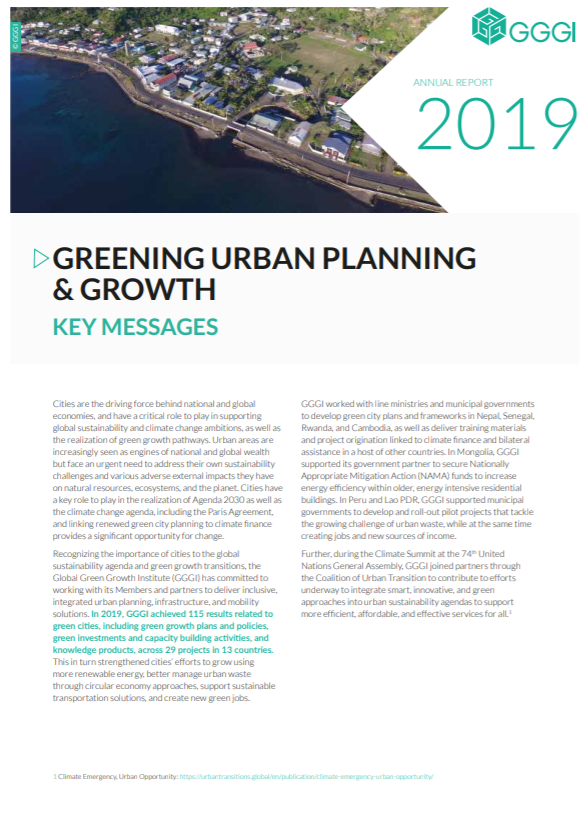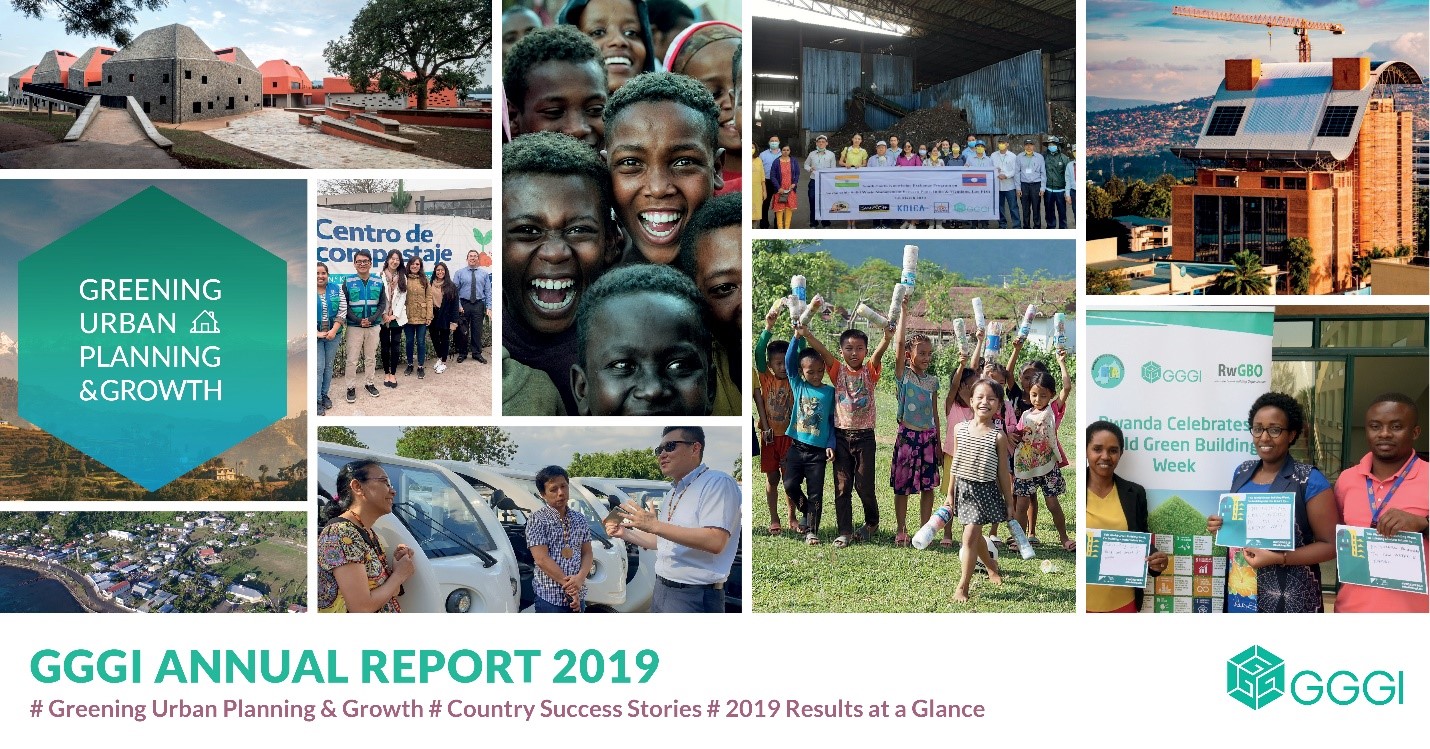
Seoul – May 8, 2020 – Members and partners of the Global Green Growth Institute (GGGI) achieved impactful results in 2019 through delivering inclusive, integrated urban planning, infrastructure, and mobility solutions. Recognizing the importance of cities to the global sustainability agenda and green growth transitions, GGGI has been supporting developing countries and emerging economies transition toward environmentally sustainable and socially inclusive economic growth.
Cities are the driving force behind national and global economies, and have a key role to play in the realization of the Sustainable Development Goals (SDGs) and the Paris Agreement and importantly, linking renewed green city planning to climate finance provides a significant opportunity for change. Greening cities and human settlements are key to these initiatives, as climate change has intensified the need to develop green cities and put sustainability at the forefront of urban planning. Today, GGGI shares its 2019 Annual Report: Greening Urban Planning & Growth to depict how transformational economic development can go hand in hand with climate change action and sustainability.
In 2019, GGGI achieved 115 results related to green cities, including green growth plans and policies, green investments and capacity building activities and knowledge products, across 29 projects in 13 countries.
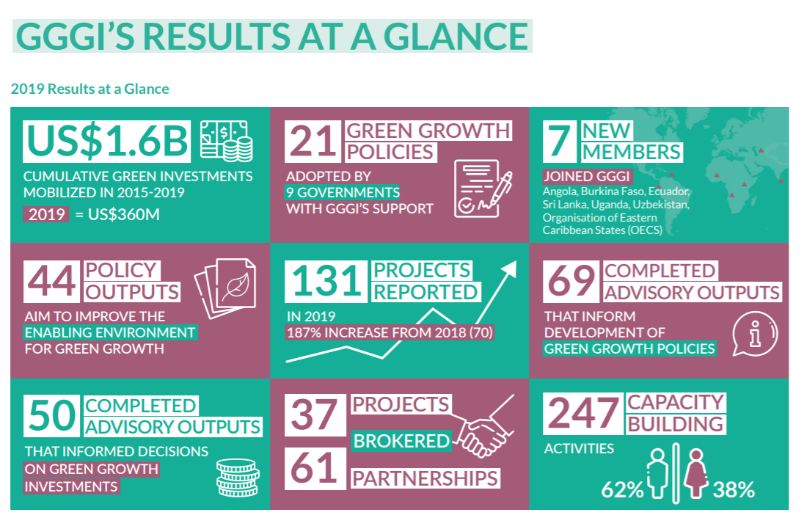
Dr. Frank Rijsberman, Director-General of GGGI said, “In 2019, the organization made significant progress on multiple fronts, to name a few: GGGI continued to mobilize green and climate finance commitments for green investment projects for its Members reaching a cumulative USD 1.6 billion; the GGGI Strategy 2030 was approved by the Council and at the Global Green Growth Week 2019 in Seoul, GGGI’s Green Growth Index was launched.”
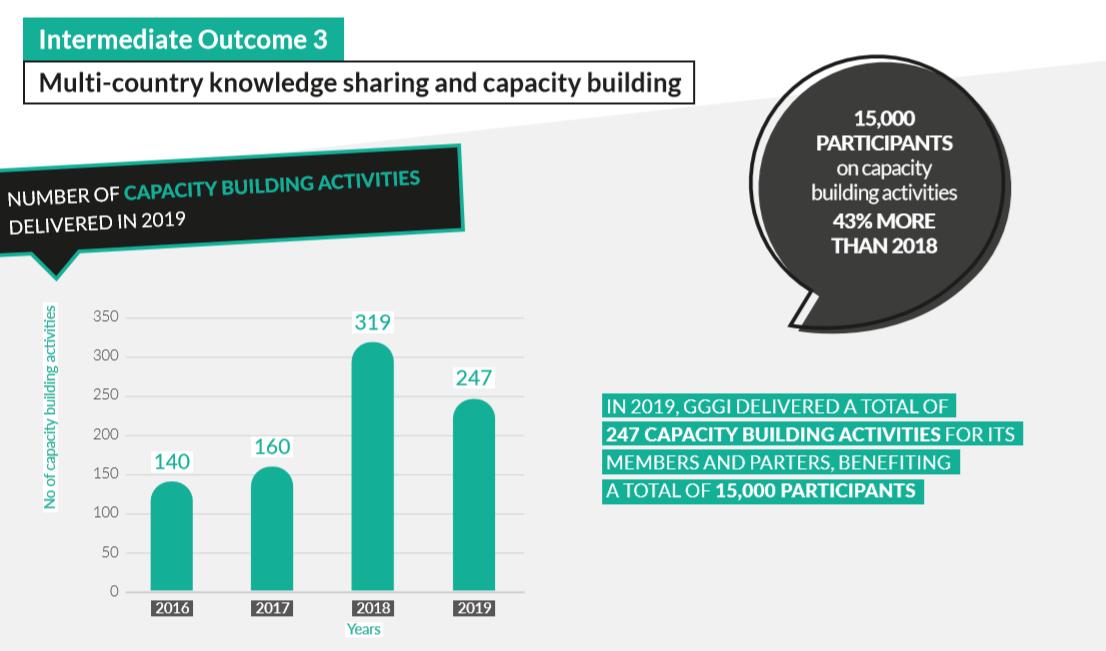
GGGI implemented 131 projects for its Members and partners, designed to target their priorities to deliver on their Nationally Determined Contributions (NDCs) and the SDGs. Moreover, GGGI delivered 247 capacity building activities for around 10,500 participants, including government officials and other relevant stakeholders, which were able to develop the knowledge and skills necessary to plan and implement green growth policies and projects.

GGGI welcomed 7 Members in 2019, with Angola, Burkina Faso, Ecuador, Sri Lanka, Uganda, Uzbekistan and the Organisation of Eastern Caribbean States (OECS) – all joining the organization in prioritizing green growth and working to solve the climate crisis.
“Two thousand nineteen was a critical year for the international community to take action on climate change, to demonstrate it is possible to decarbonize the economy, and to ensure that we can maintain a high standard of living in an inclusive economy that leaves no one behind,” shared GGGI President & Chair, Mr. Ban Ki-moon.
“Many countries, including GGGI Members, are stepping up efforts to achieve net-zero emissions by 2050, and one of GGGI’s priorities is focusing on supporting its Members to meet their ambitious NDC commitments.”
GGGI has continued to support its Members to develop and implement projects for the green transition. For instance, GGGI provided assistance to the government of Lao PDR to secure USD 6.5 million of funding for green city development projects to pursue its long-term goals of ensuring sustainable and green infrastructure development. In Rwanda, the government launched the Green Building Minimum Compliance System along with the revised Rwanda Building Code 2019 to reduce GHG emissions from the building and construction sector, which accounted for 61% of final energy use and 32% of energy-related CO2 emissions the previous year.
The COVID-19 pandemic is introducing a new risk for climate action in particular and for green growth in general.
Dr. Frank Rijsberman, Director-General of GGGI added that, “In the uncertain world shaped by COVID-19, GGGI is in a strong position to accelerate the green transition for its 36 Members and implement its Strategy 2030.
“The organization was well prepared for the pandemic, both through efforts taken to put in place online systems that support decentralized, remote working, business processes that make the organization more agile and flexible, and through successful resource mobilization that have increased GGGI’s projected 2020 revenues 83% over 2017 (Pre-COVID-19).”
Click here to visit the GGGI 2019 Annual Report Website for more information.
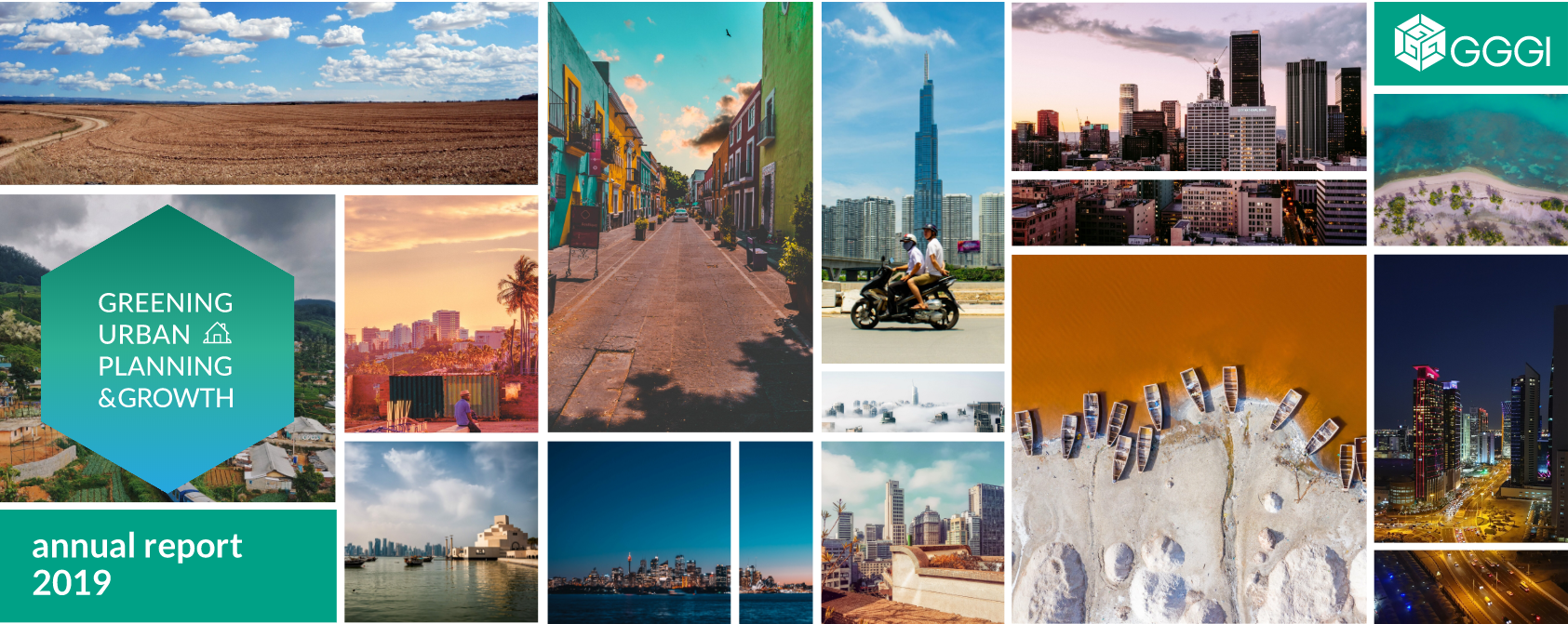
Read the 2019 Key Messages here.
